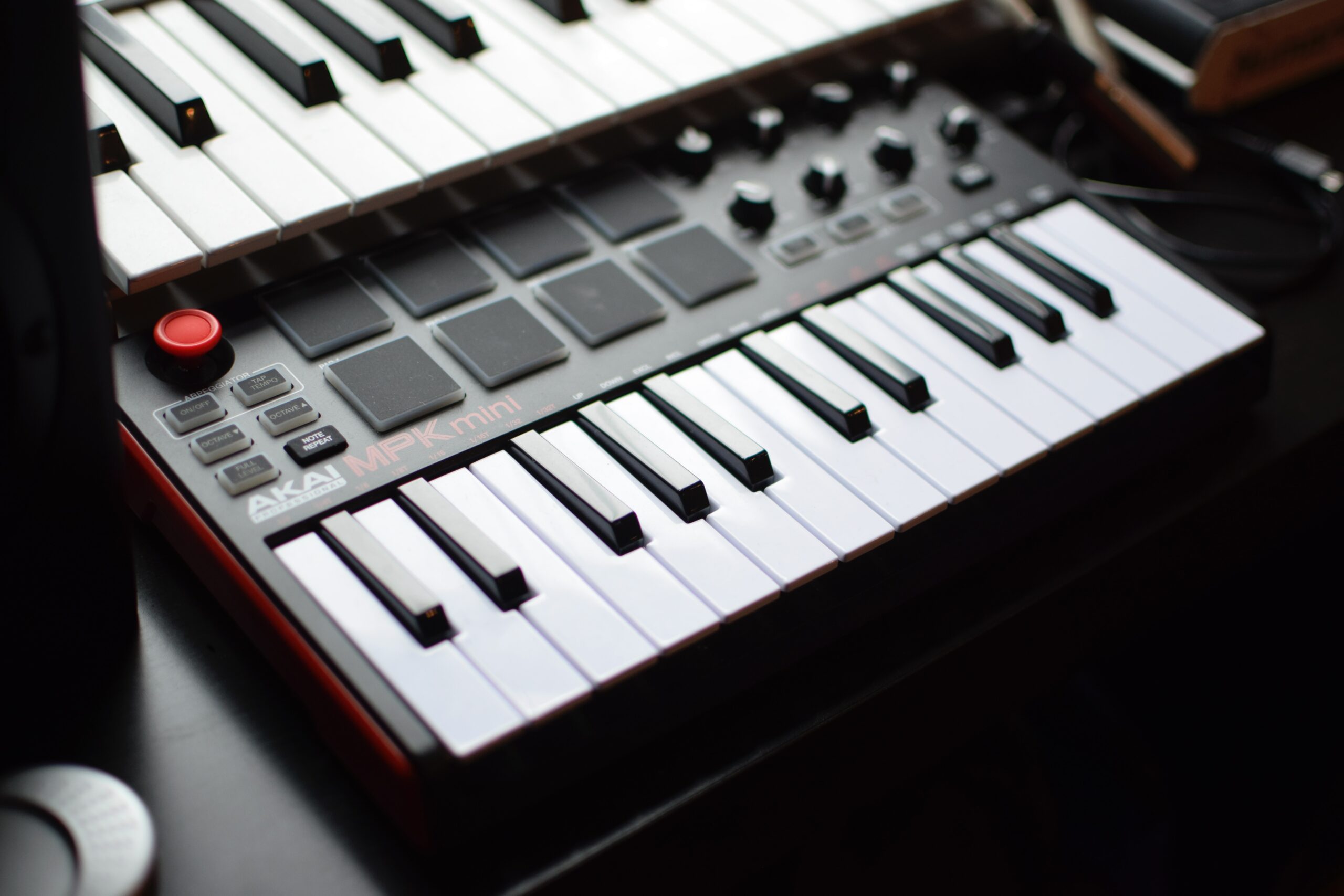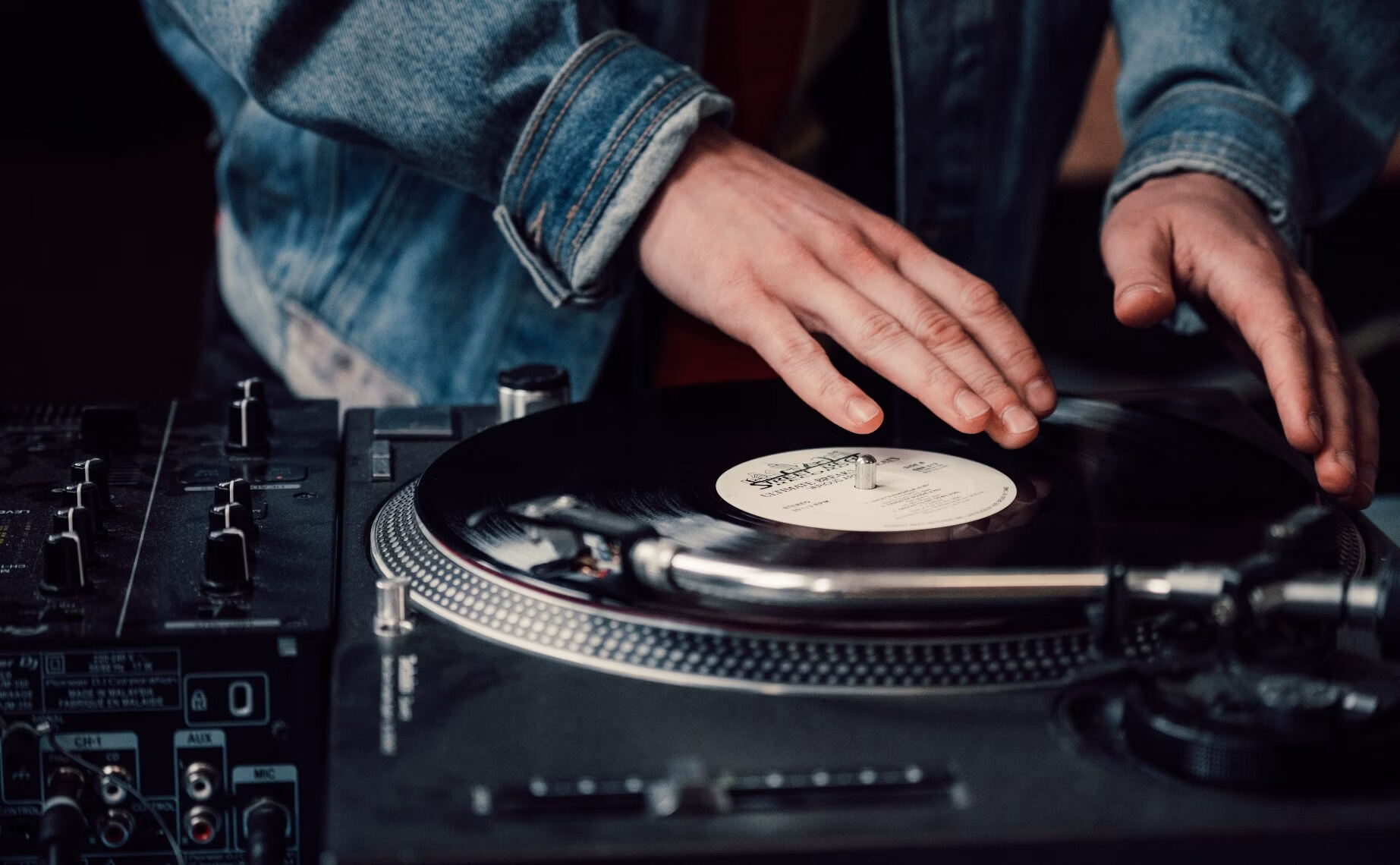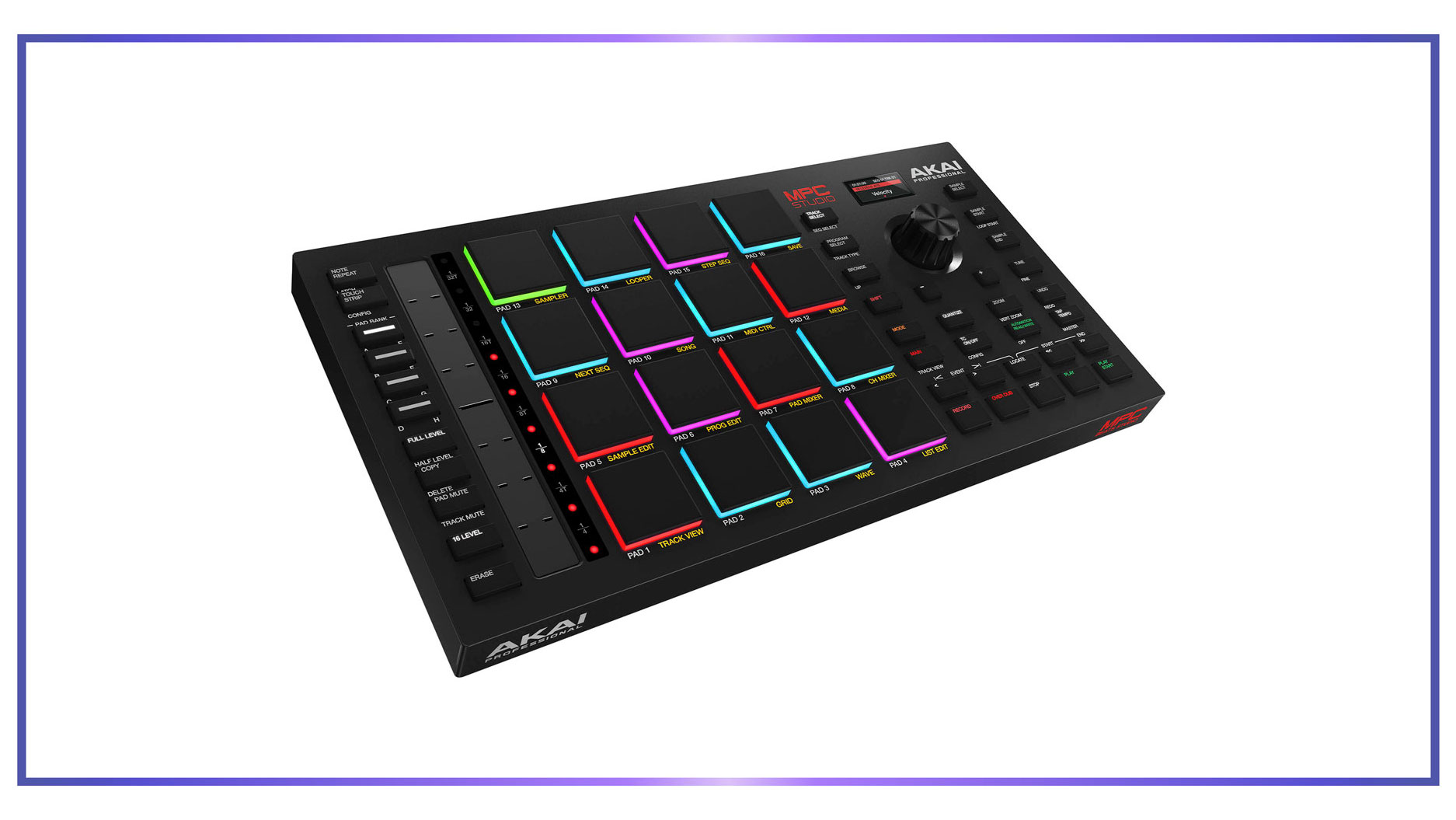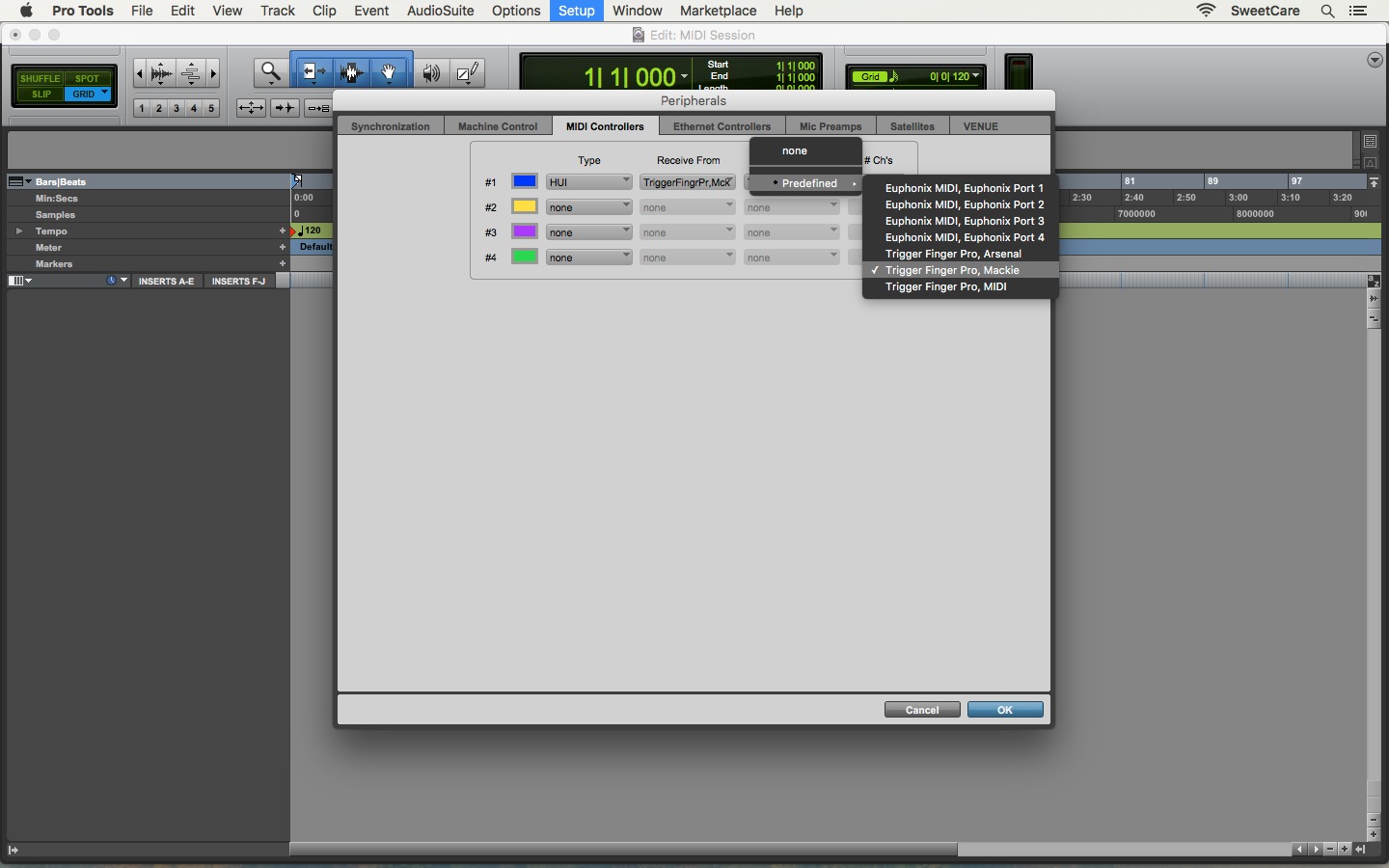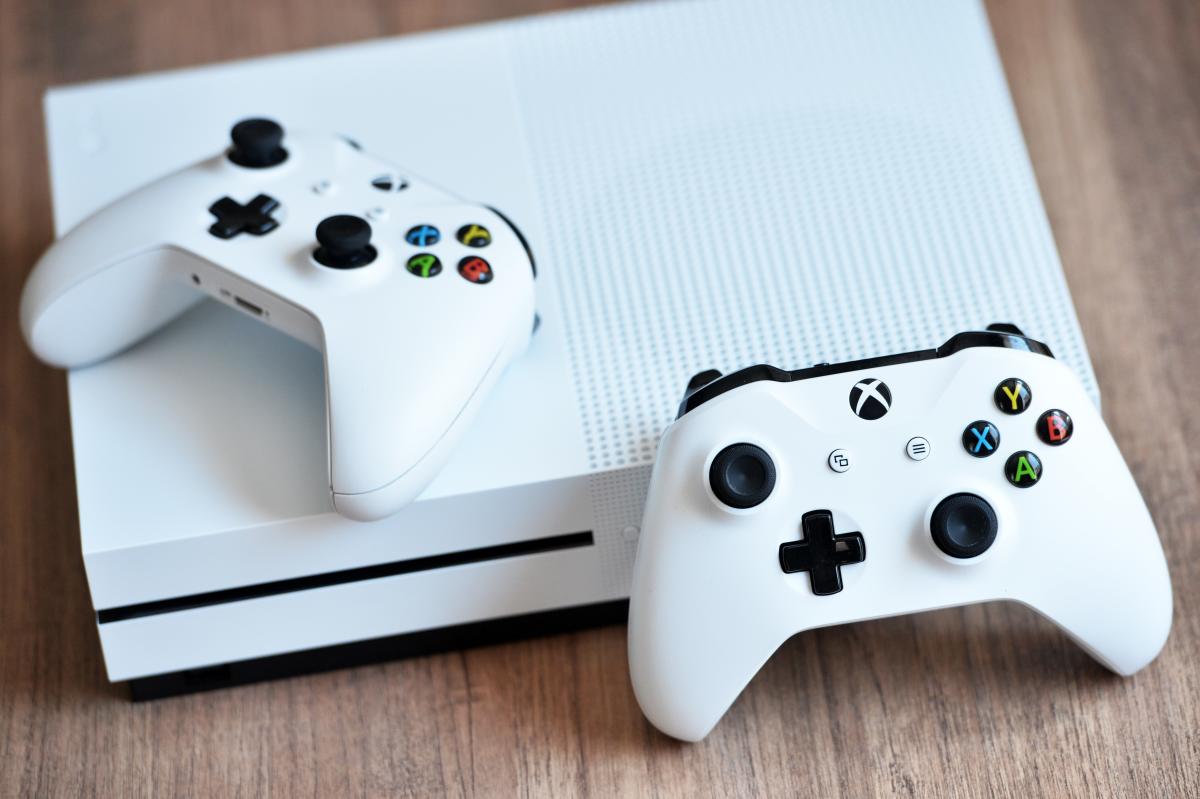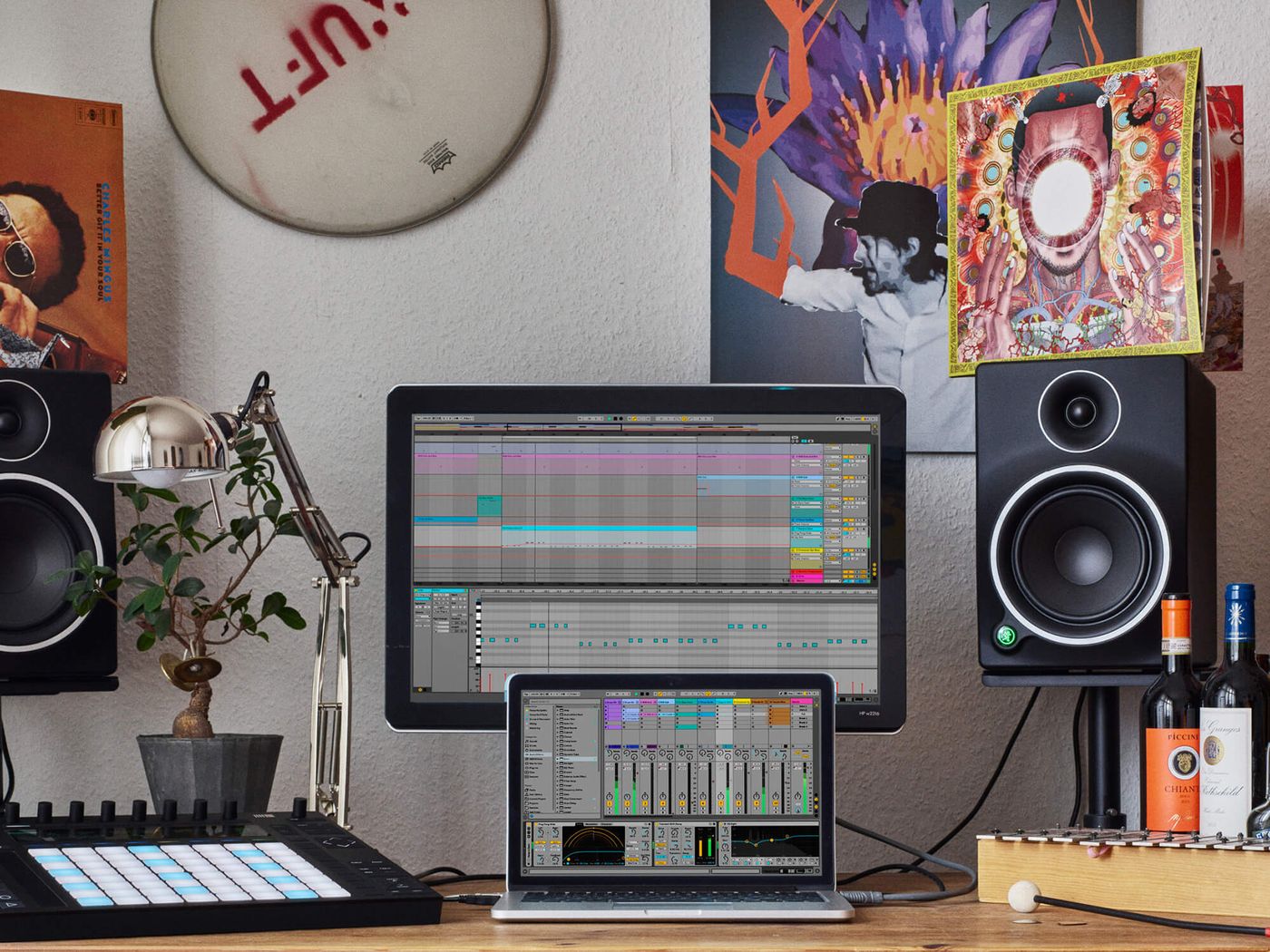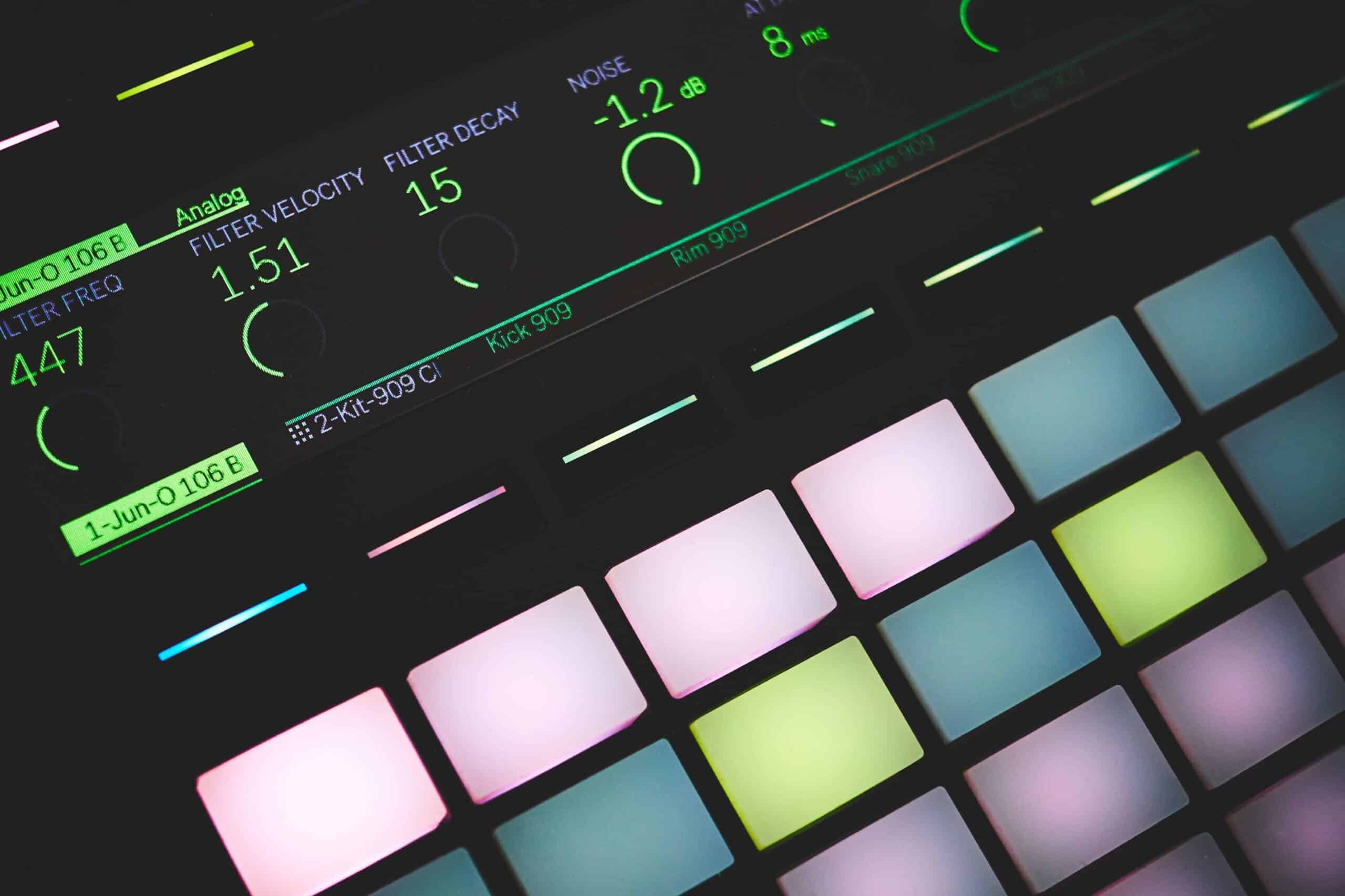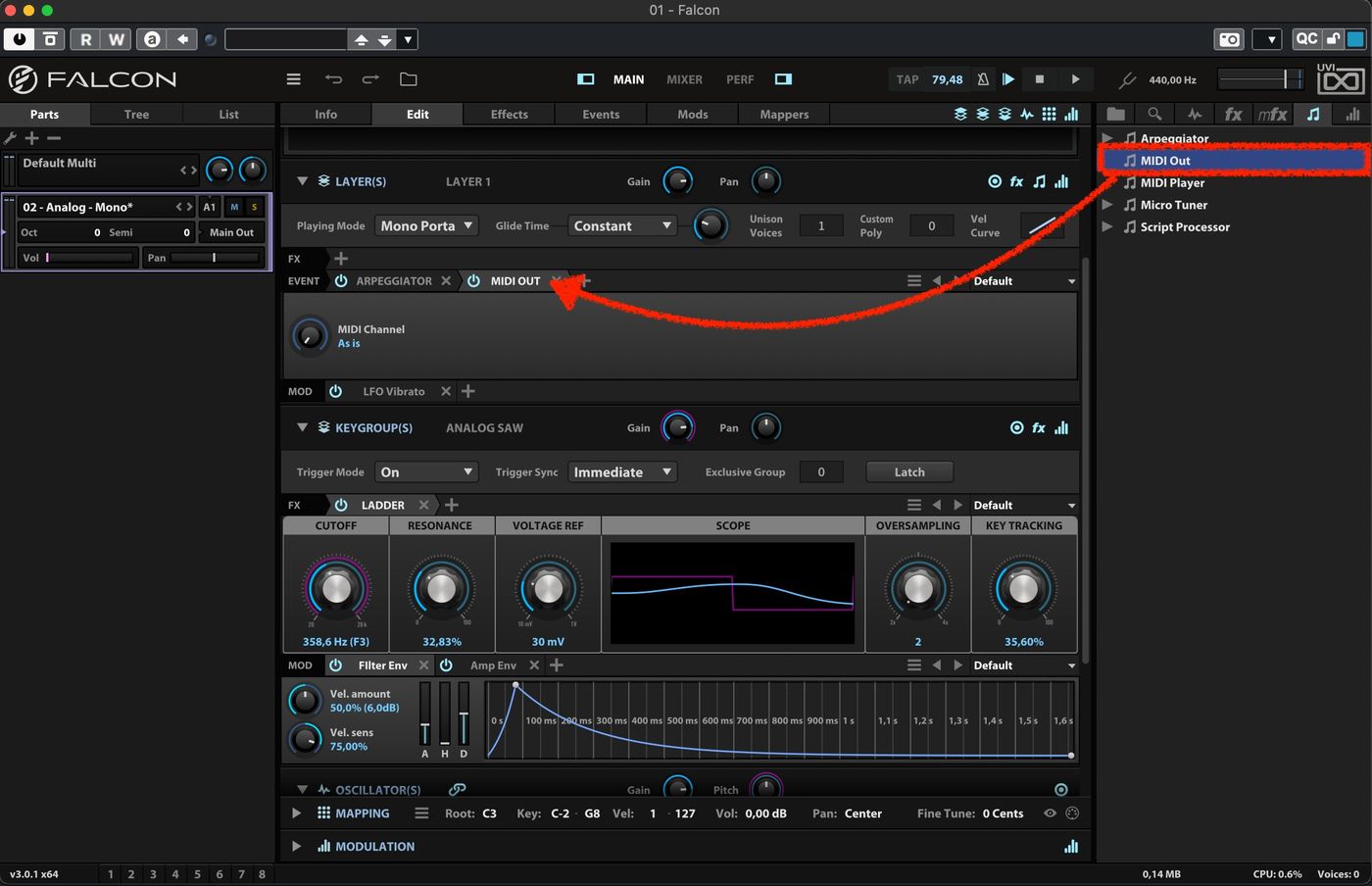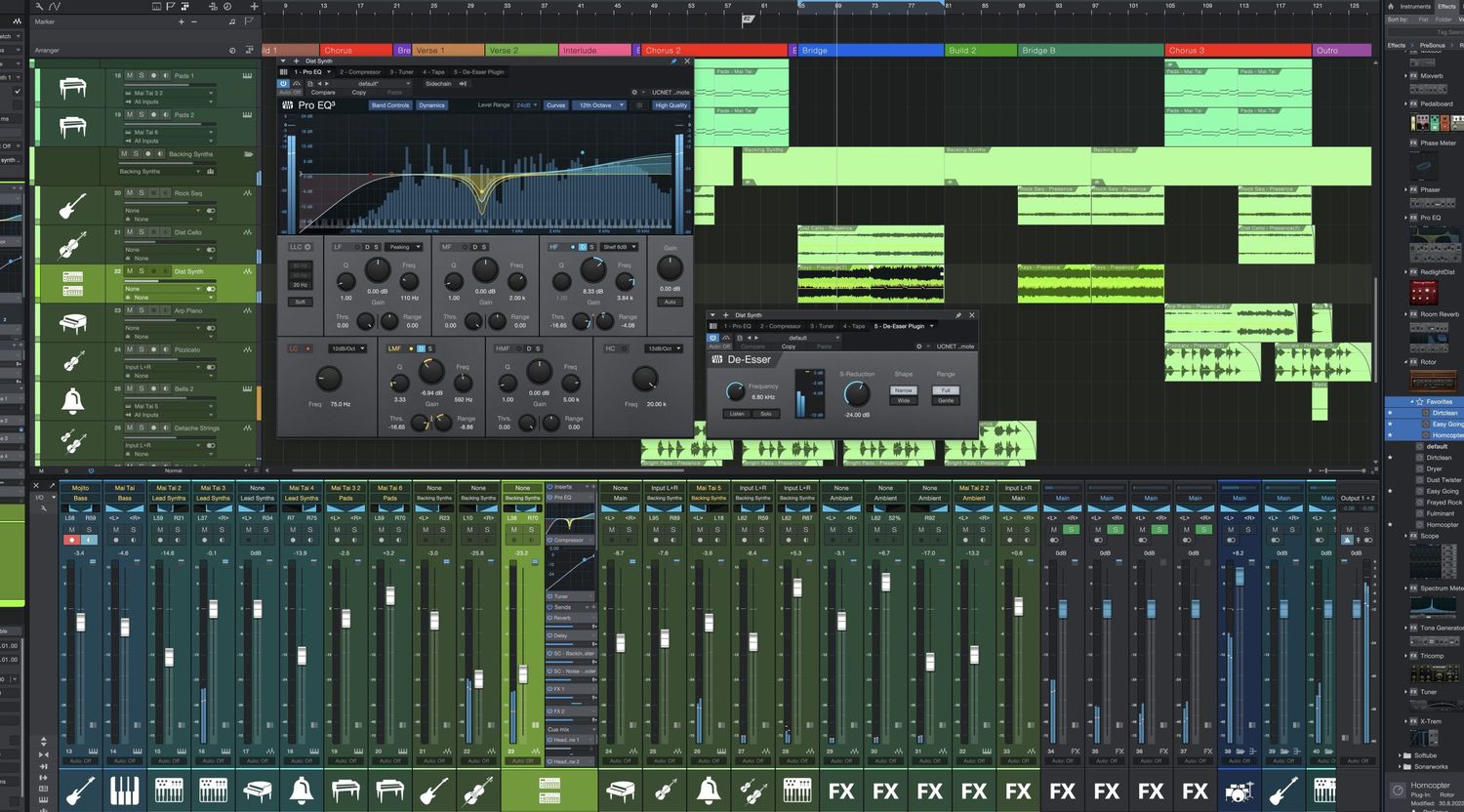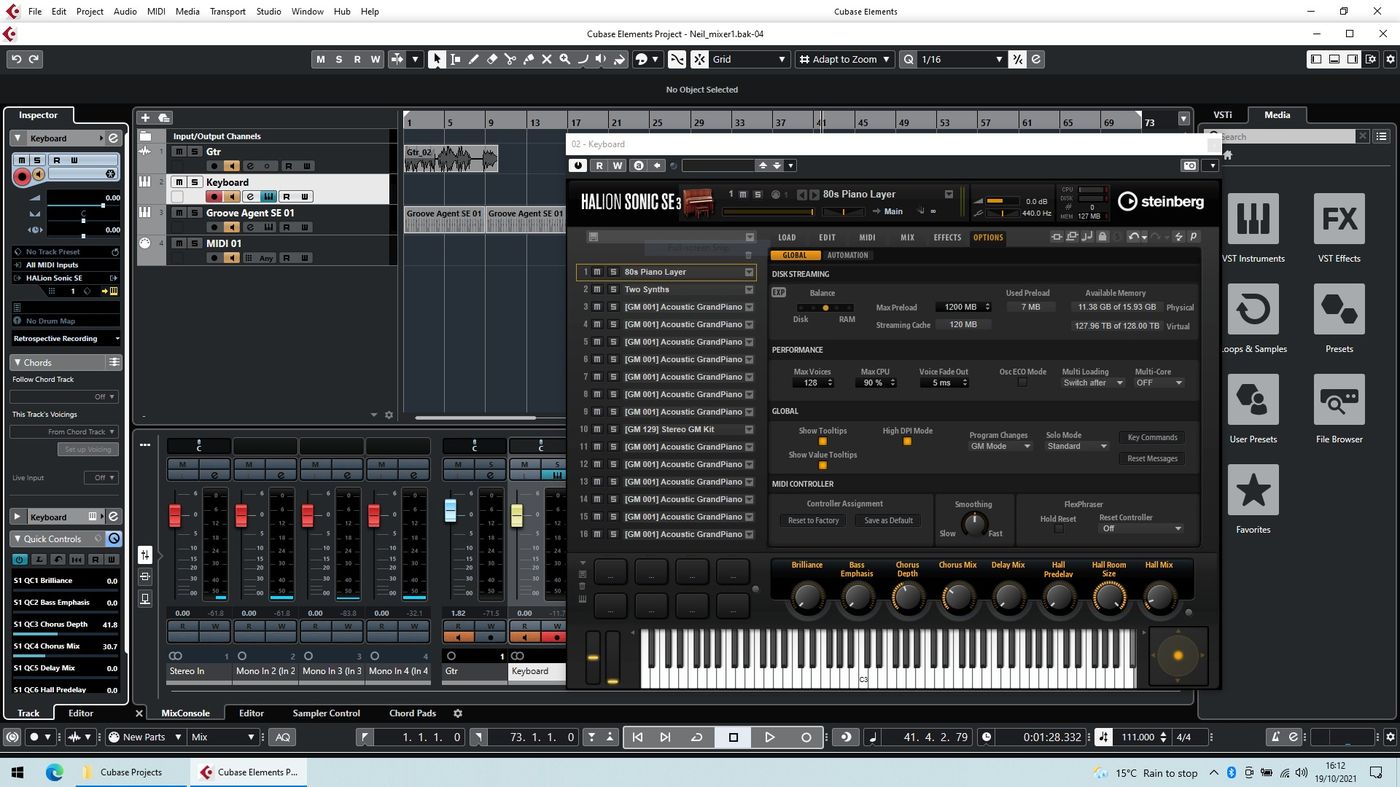Home>Production & Technology>MIDI>What Is The Best MIDI Controller For DJing
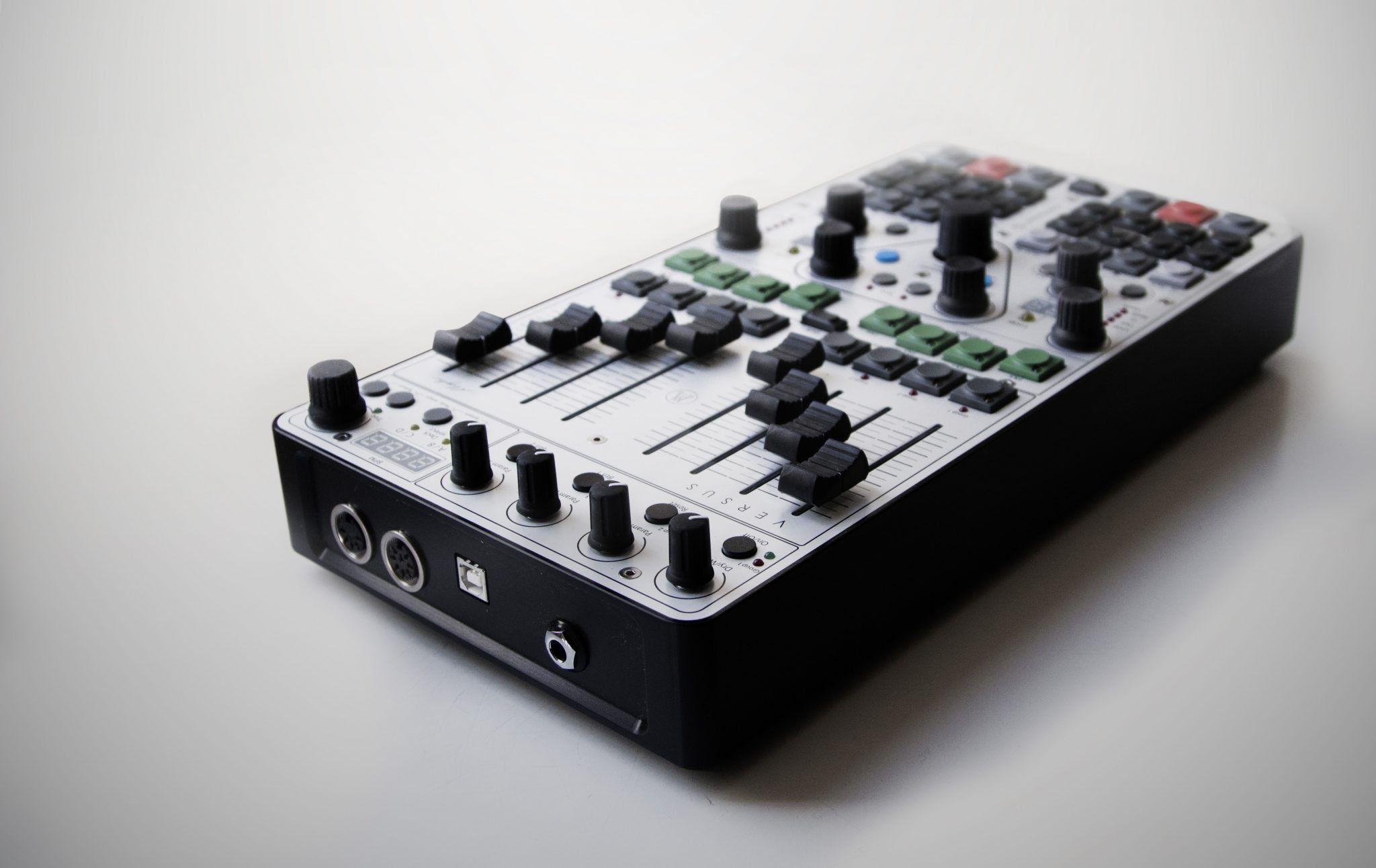

MIDI
What Is The Best MIDI Controller For DJing
Modified: March 4, 2024
Looking for the best MIDI controller for DJing? Discover top options and find the perfect MIDI controller for your DJ setup.
(Many of the links in this article redirect to a specific reviewed product. Your purchase of these products through affiliate links helps to generate commission for AudioLover.com, at no extra cost. Learn more)
Table of Contents
Introduction
When it comes to the art of DJing, having the right tools at your disposal can make all the difference in creating a seamless and electrifying performance. One of the most essential components of a DJ's setup is the MIDI controller. This versatile piece of equipment serves as the bridge between the DJ and their music, allowing for precise control over various elements of the mix, such as tempo, pitch, and effects.
In the world of DJing, MIDI controllers have revolutionized the way music is mixed and performed live. These devices provide a tactile and intuitive interface that empowers DJs to manipulate their tracks with precision and creativity. Whether you're a seasoned professional or a budding enthusiast, choosing the best MIDI controller for DJing can significantly impact your performance and overall experience.
With a myriad of options available on the market, selecting the right MIDI controller can be a daunting task. Factors such as functionality, build quality, compatibility, and budget all come into play when making this crucial decision. Moreover, with the rapid advancements in technology, MIDI controllers continue to evolve, offering an array of features and capabilities to cater to the diverse needs of DJs.
In this comprehensive guide, we will delve into the various types of MIDI controllers tailored for DJing, explore the key factors to consider when choosing the ideal controller, and highlight some of the top MIDI controllers that have garnered acclaim within the DJing community. Whether you're a turntable purist, a digital DJ, or a hybrid performer, this guide aims to equip you with the knowledge and insights needed to make an informed decision and elevate your DJing experience to new heights.
Types of MIDI Controllers for DJing
When it comes to DJing, MIDI controllers come in various forms, each catering to different preferences and styles of performance. Understanding the different types of MIDI controllers available is essential for selecting the one that best aligns with your DJing needs. Here are the primary types of MIDI controllers tailored for DJing:
1. DJ Software Controllers
DJ software controllers are designed to seamlessly integrate with popular DJ software such as Serato DJ, Traktor, and rekordbox. These controllers typically feature a layout that mirrors the software's interface, providing tactile control over various functions such as track loading, cue points, tempo adjustment, and effects manipulation. They often include jog wheels, faders, knobs, and pads, offering a comprehensive set of tools for performing intricate mixes and transitions.
2. Pad Controllers
Pad controllers are a staple in the arsenal of many modern DJs, especially those who incorporate elements of finger drumming and live remixing into their sets. These controllers are characterized by a grid of pressure-sensitive pads, which can be assigned to trigger samples, loops, and effects. Pad controllers offer a dynamic and expressive way to interact with music, allowing DJs to unleash their creativity and infuse their performances with unique rhythmic patterns and textures.
3. Hybrid Controllers
Hybrid controllers combine the functionality of traditional DJ equipment, such as CDJs or turntables, with the versatility of MIDI control. These controllers often feature motorized platters, touch-sensitive knobs, and high-resolution displays, providing a familiar feel for DJs who are accustomed to classic DJ setups. Hybrid controllers bridge the gap between analog and digital DJing, offering the tactile feedback of traditional gear alongside the flexibility of MIDI mapping and customization.
4. Mixer-Style Controllers
Mixer-style controllers emulate the layout and functionality of a traditional DJ mixer, complete with channel faders, EQ knobs, and crossfaders. These controllers are ideal for DJs who prioritize seamless blending and precise mixing. By integrating MIDI capabilities, mixer-style controllers enable DJs to harness the power of software-based effects, looping, and performance features while retaining the ergonomic layout of a standard mixer.
5. All-in-One Controllers
All-in-one controllers encompass a comprehensive range of features, often combining the functionality of DJ software controllers, mixer-style controllers, and pad controllers into a single unit. These versatile controllers aim to provide a complete DJing solution, offering a diverse array of controls and performance options within a unified interface. All-in-one controllers are designed to streamline the DJing workflow, making them an attractive choice for DJs seeking an all-encompassing solution.
Understanding the distinct characteristics and capabilities of each type of MIDI controller is crucial for making an informed decision when selecting the ideal controller for your DJing endeavors. By considering your preferred DJing style, performance requirements, and workflow preferences, you can narrow down the options and identify a MIDI controller that empowers you to unleash your creativity and elevate your performances.
Factors to Consider When Choosing a MIDI Controller
Selecting the right MIDI controller for DJing involves careful consideration of several key factors to ensure that the chosen controller aligns with your specific needs and preferences. Here are the essential factors to keep in mind when evaluating MIDI controllers for DJing:
1. DJing Style and Workflow
Understanding your DJing style and workflow is paramount when choosing a MIDI controller. Whether you specialize in beat-matching and seamless transitions, live remixing and sample triggering, or a combination of various techniques, your controller should complement and enhance your unique approach to DJing.
2. Control Layout and Features
The layout and features of a MIDI controller play a pivotal role in shaping the DJing experience. Consider the arrangement of jog wheels, faders, knobs, pads, and buttons, as well as the presence of dedicated controls for essential functions such as looping, cue points, and effects. Assess whether the controller's interface facilitates intuitive and efficient control over your music.
3. Software Compatibility
Ensure that the MIDI controller is compatible with the DJ software you prefer to use. Whether it's Serato DJ, Traktor, rekordbox, or other popular platforms, seamless integration between the controller and software is crucial for a cohesive and responsive DJing setup.
4. Build Quality and Durability
The build quality of a MIDI controller directly impacts its longevity and performance under demanding conditions. Assess the materials used, the sturdiness of knobs and faders, and the overall construction to determine the controller's durability for live performances and extensive use.
5. Portability and Size
For DJs who frequently perform at different venues or on the go, the portability and size of the MIDI controller are significant considerations. Compact and lightweight controllers offer convenience and ease of transport without compromising on functionality.
6. Connectivity and Expandability
Evaluate the connectivity options of the MIDI controller, including USB, MIDI ports, and additional inputs/outputs. Furthermore, consider the potential for expandability, such as the ability to connect additional devices or expand the controller's capabilities through modular components.
7. Budget and Value
Establish a clear budget for your MIDI controller investment and weigh the features and capabilities offered by different models against their respective price points. Striking a balance between affordability and the value the controller brings to your DJing setup is essential for a satisfactory investment.
By carefully evaluating these factors and aligning them with your specific DJing requirements, you can make an informed decision when selecting a MIDI controller that empowers you to express your creativity, elevate your performances, and embark on a fulfilling DJing journey.
Top MIDI Controllers for DJing
When it comes to choosing the top MIDI controllers for DJing, several standout options have garnered acclaim for their innovative features, intuitive design, and seamless integration with popular DJ software. These controllers cater to a diverse range of DJing styles and preferences, offering a wealth of creative possibilities and performance-enhancing capabilities. Whether you're a seasoned professional or an aspiring DJ looking to elevate your craft, exploring the top MIDI controllers can provide valuable insights into the available options. Here are some of the leading MIDI controllers that have made a significant impact in the DJing community:
1. Pioneer DJ DDJ-1000
The Pioneer DJ DDJ-1000 stands out as a flagship DJ controller, renowned for its professional-grade build quality and extensive feature set. Boasting full-size jog wheels, tactile performance pads, and a club-style layout, the DDJ-1000 offers a familiar and ergonomic interface for DJs. Its integration with rekordbox DJ software provides seamless control over tracks, hot cues, and effects, making it a preferred choice for club and mobile DJs seeking a reliable and versatile controller.
2. Native Instruments Traktor Kontrol S4 Mk3
Designed for seamless integration with Native Instruments' Traktor Pro software, the Traktor Kontrol S4 Mk3 combines a premium 4-channel mixer, responsive jog wheels, and dual high-resolution displays. Its Haptic Drive™ technology delivers a tactile and immersive experience, allowing DJs to feel the rhythm and nuances of their tracks. With its versatile performance pads and extensive mixer and effect controls, the Traktor Kontrol S4 Mk3 empowers DJs to craft dynamic and expressive performances.
3. Numark NS6II
The Numark NS6II represents a feature-packed MIDI controller tailored for both Serato DJ and standalone operation. Equipped with dual USB audio interfaces, capacitive touch knobs, and responsive performance pads, the NS6II offers a comprehensive set of tools for DJs seeking versatility and flexibility. Its robust metal construction and touch-capacitive jog wheels make it a reliable choice for mobile DJs and performers who prioritize durability and tactile control.
4. Roland DJ-505
Combining the classic feel of Roland's drum machines with modern DJ performance capabilities, the DJ-505 offers a unique blend of sequencing, sampling, and mixing features. Its integration with Serato DJ Pro unlocks a wealth of creative possibilities, allowing DJs to trigger drum sounds, build patterns, and manipulate tracks with precision. The DJ-505's robust build, extensive connectivity options, and dedicated TR-S drum machine interface make it a compelling choice for DJs seeking a fusion of traditional and contemporary performance elements.
5. Denon DJ MC7000
The Denon DJ MC7000 stands out as a professional 4-channel controller designed to deliver a premium DJing experience. With its dual USB audio interfaces, touch-sensitive jog wheels, and extensive hardware controls, the MC7000 offers a comprehensive platform for DJs to craft seamless mixes and engage with their audience. Its Serato DJ compatibility, robust performance pads, and dedicated FX section make it an ideal choice for DJs who demand uncompromising performance and versatility.
Exploring the top MIDI controllers for DJing provides valuable insights into the diverse array of features, capabilities, and design philosophies that define these leading controllers. By evaluating the unique strengths and suitability of each controller in relation to your DJing style and preferences, you can make an informed decision that aligns with your creative vision and elevates your performances to new heights.
Conclusion
In conclusion, the world of DJing has been significantly transformed by the evolution of MIDI controllers, offering DJs unparalleled control, creativity, and flexibility in their performances. As technology continues to advance, MIDI controllers have become indispensable tools for DJs across various genres and styles. The diverse range of MIDI controllers tailored for DJing, including DJ software controllers, pad controllers, hybrid controllers, mixer-style controllers, and all-in-one controllers, caters to the unique preferences and workflows of DJs, empowering them to express their artistry with precision and flair.
When considering the factors that are crucial for choosing the best MIDI controller for DJing, it becomes evident that aspects such as DJing style, control layout, software compatibility, build quality, portability, connectivity, and budget play pivotal roles in the decision-making process. By carefully evaluating these factors and aligning them with individual preferences and performance requirements, DJs can select a MIDI controller that seamlessly integrates into their workflow, enhances their creativity, and facilitates memorable and captivating performances.
The top MIDI controllers highlighted in this guide, including the Pioneer DJ DDJ-1000, Native Instruments Traktor Kontrol S4 Mk3, Numark NS6II, Roland DJ-505, and Denon DJ MC7000, exemplify the innovation and versatility present in modern DJing technology. These controllers have earned acclaim for their advanced features, intuitive design, and seamless integration with leading DJ software, catering to the diverse needs of DJs and empowering them to push the boundaries of their performances.
Aspiring DJs and seasoned professionals alike can benefit from exploring the top MIDI controllers and understanding their unique strengths and capabilities. By doing so, they can make informed decisions that align with their creative vision, technical requirements, and performance aspirations. Whether it's crafting seamless mixes, triggering dynamic samples, or engaging with audiences through expressive performances, the right MIDI controller can serve as a catalyst for elevating the art of DJing to new heights.
In essence, the best MIDI controller for DJing is not merely a piece of equipment, but a conduit for artistic expression, innovation, and connection with music. As the landscape of DJing continues to evolve, MIDI controllers will undoubtedly remain at the forefront, empowering DJs to shape and redefine the sonic landscapes of the future.

